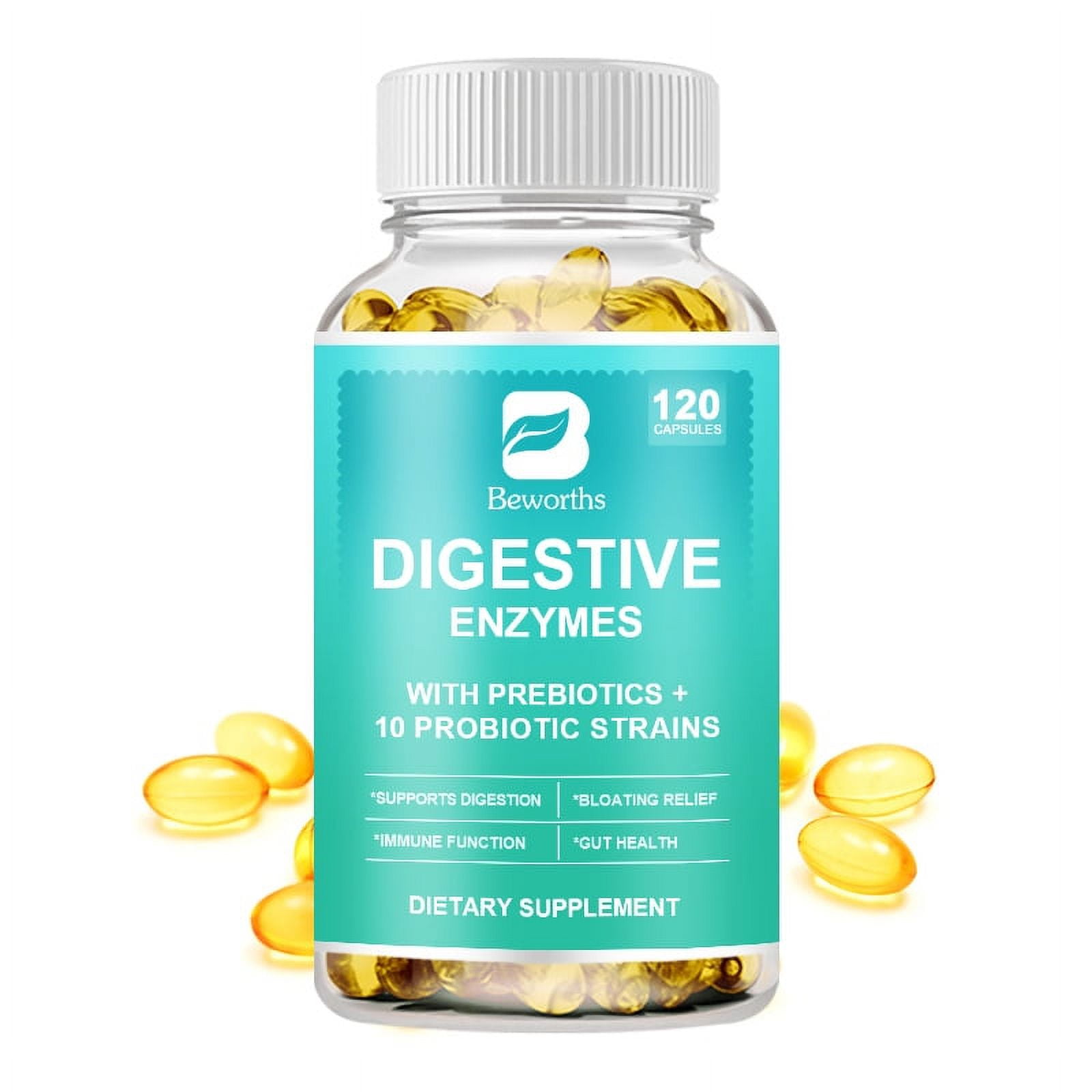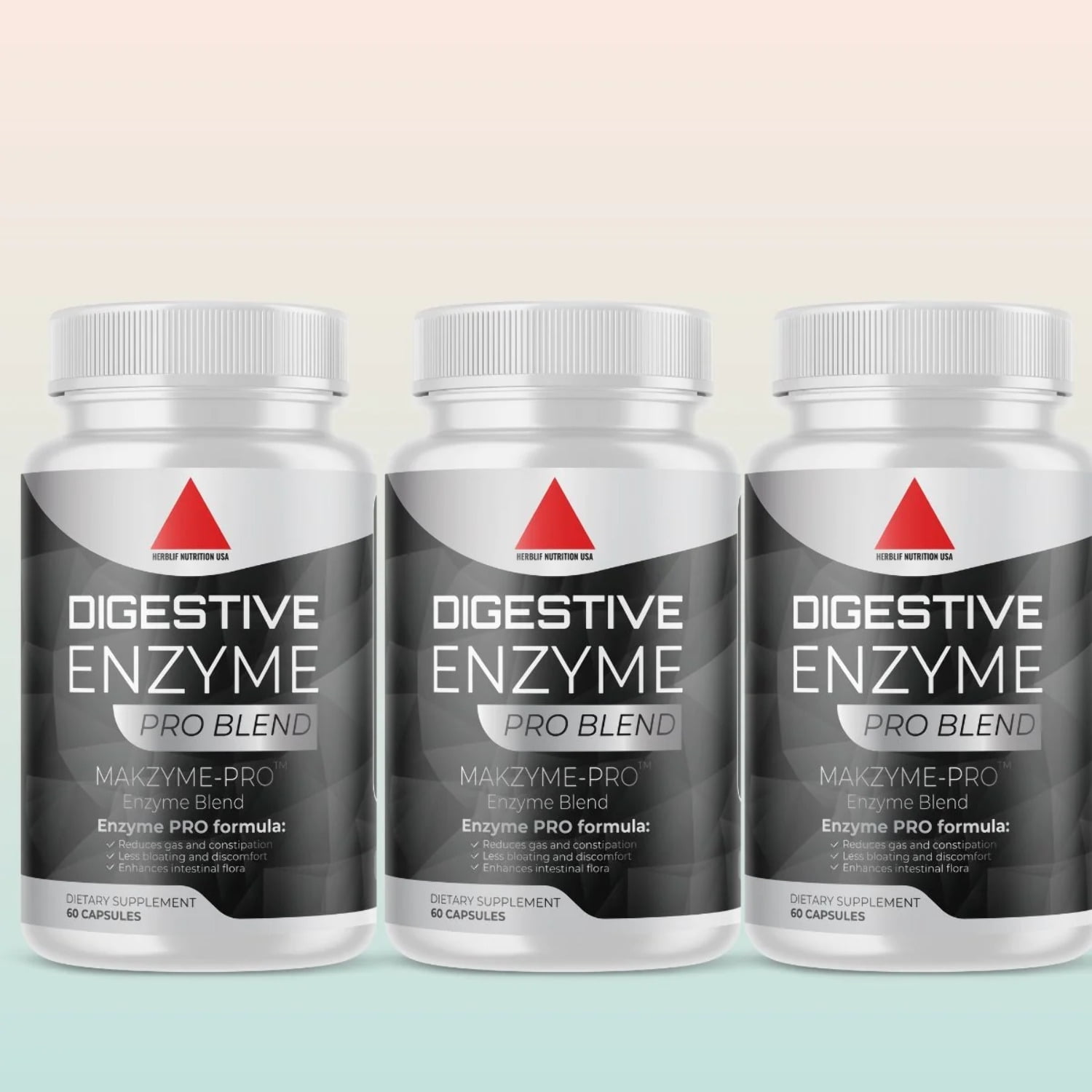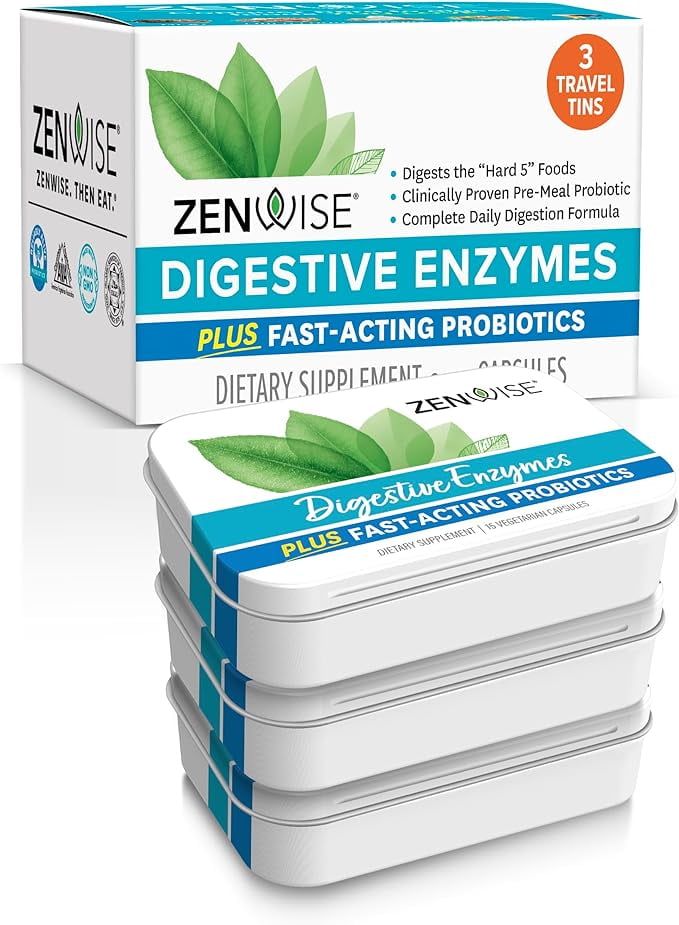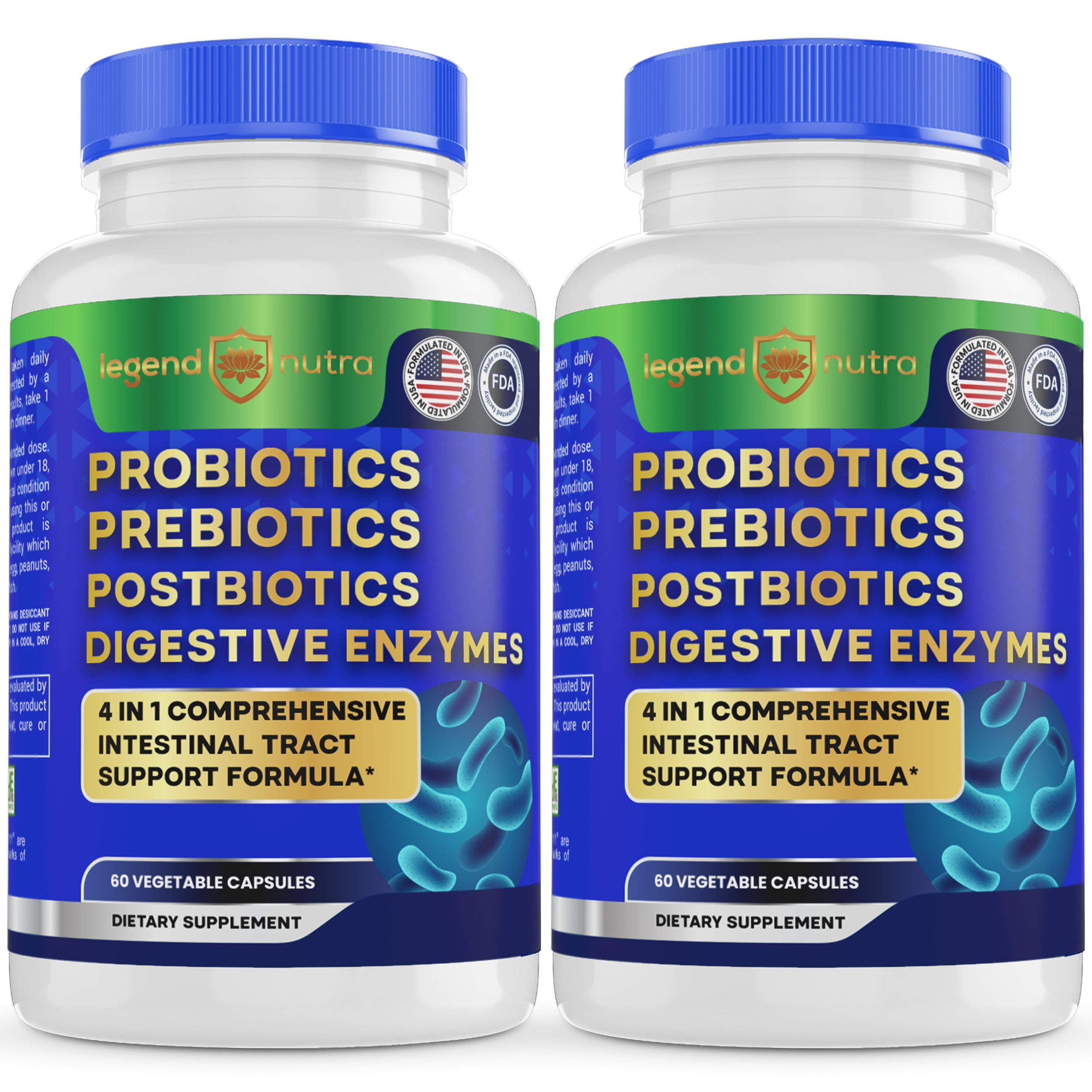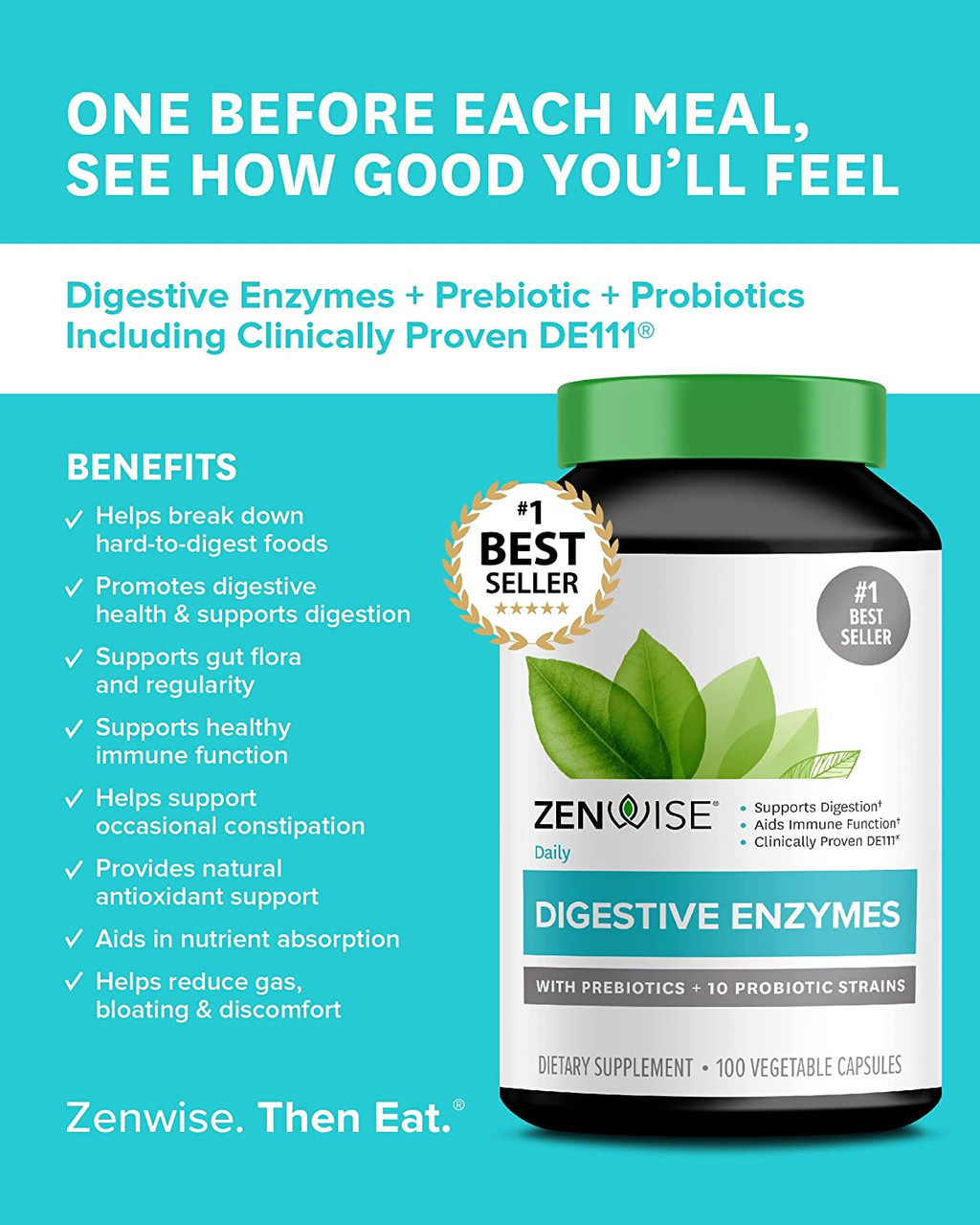Digestive Enzymes With Probiotics And Prebiotics
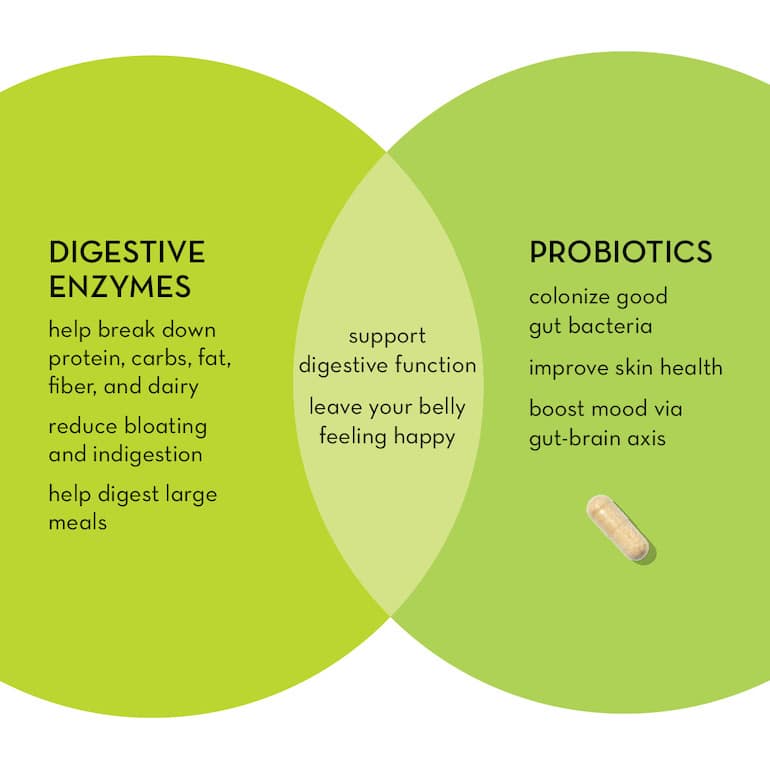
The gut microbiome, a complex ecosystem teeming with trillions of microorganisms, is increasingly recognized as a cornerstone of human health. Disruptions in this delicate balance, often manifested as digestive discomfort, can cascade into a range of systemic issues. A novel approach to gut health is gaining traction: combining digestive enzymes with probiotics and prebiotics.
This synergistic formulation aims to not only alleviate digestive symptoms but also to foster a thriving gut environment, potentially impacting everything from immunity to mental well-being. This article delves into the science behind this combined approach, exploring its potential benefits, limitations, and the current state of research.
Understanding the Triad: Enzymes, Probiotics, and Prebiotics
Digestive enzymes are biological catalysts that break down food into smaller, absorbable molecules. The human body naturally produces enzymes like amylase (for carbohydrates), protease (for proteins), and lipase (for fats). Enzyme supplementation can be beneficial for individuals with enzyme deficiencies or those experiencing digestive difficulties.
Probiotics are live microorganisms that, when administered in adequate amounts, confer a health benefit on the host, according to the World Health Organization. They primarily consist of beneficial bacteria strains like Lactobacillus and Bifidobacterium.
Prebiotics, on the other hand, are non-digestible food ingredients that promote the growth and activity of beneficial bacteria in the gut. Common prebiotics include fibers like inulin and fructooligosaccharides (FOS).
The Synergistic Effect
The combination of these three components presents a compelling approach to digestive health. Enzymes aid in the initial breakdown of food, facilitating nutrient absorption and reducing the burden on the digestive system. Probiotics introduce beneficial bacteria to the gut, improving the composition of the microbiome.
Prebiotics act as fuel for these probiotics, supporting their growth and colonization within the gut. This synergistic effect could lead to a more comprehensive improvement in gut health compared to using each component in isolation.
Potential Benefits and Scientific Evidence
Several studies suggest potential benefits of combining digestive enzymes, probiotics, and prebiotics. Research has shown that such combinations can alleviate symptoms of irritable bowel syndrome (IBS), such as bloating, abdominal pain, and altered bowel habits. A study published in the Journal of Clinical Gastroenterology found that a combination of enzymes and probiotics significantly reduced bloating in IBS patients compared to placebo.
Furthermore, this combined approach may improve nutrient absorption, particularly in individuals with digestive disorders. Enzymes facilitate the breakdown of complex nutrients, while probiotics enhance the gut's absorptive capacity. Prebiotics further support this process by maintaining a healthy gut lining.
Beyond digestive health, this combination is being explored for its potential impact on immune function. The gut microbiome plays a critical role in immune system development and regulation. By promoting a balanced gut flora, enzymes, probiotics, and prebiotics may contribute to a stronger and more resilient immune system.
Considerations and Limitations
Despite the promising potential, it's crucial to acknowledge the limitations and considerations associated with this approach. The efficacy of enzyme, probiotic, and prebiotic combinations can vary depending on the specific strains and formulations used. Not all probiotics are created equal, and some strains may be more effective than others for certain conditions.
Furthermore, the optimal dosage and duration of treatment remain areas of ongoing research. Individual responses to these combinations can also vary significantly, influenced by factors such as age, genetics, and existing gut microbiome composition.
Another crucial aspect is the quality and safety of supplements. The supplement industry is not as tightly regulated as the pharmaceutical industry. It is important to select products from reputable brands that undergo third-party testing to ensure purity and potency.
Expert Opinions and Perspectives
Experts in the field of gastroenterology are cautiously optimistic about the potential of enzyme, probiotic, and prebiotic combinations. Dr. Emily Carter, a gastroenterologist at the Mayo Clinic, emphasizes the importance of personalized approaches to gut health. She states, "While these combinations show promise, it's essential to work with a healthcare professional to determine the most appropriate and effective strategy for your individual needs."
Dr. David Miller, a researcher specializing in gut microbiome research at the University of California, San Francisco, highlights the need for more robust clinical trials. "We need larger, well-designed studies to fully understand the long-term effects of these combinations and to identify the specific populations that would benefit the most," he notes.
The Future of Gut Health: A Personalized Approach
The future of gut health is likely to be increasingly personalized. Advances in microbiome analysis are enabling healthcare professionals to gain a deeper understanding of an individual's unique gut environment.
This knowledge can be used to tailor enzyme, probiotic, and prebiotic interventions to specific needs and to monitor the effectiveness of treatment. Researchers are also exploring novel delivery methods, such as targeted-release capsules, to optimize the delivery of probiotics and enzymes to specific regions of the gut.
Conclusion
Digestive enzymes combined with probiotics and prebiotics represent a promising approach to improving gut health and overall well-being. While research is ongoing, the existing evidence suggests that this synergistic formulation can alleviate digestive symptoms, enhance nutrient absorption, and support immune function.
However, it's crucial to approach this strategy with caution and to consult with a healthcare professional to determine the most appropriate and effective approach for individual needs. As research continues to unravel the complexities of the gut microbiome, personalized interventions involving enzymes, probiotics, and prebiotics are likely to play an increasingly important role in maintaining and restoring optimal health.


